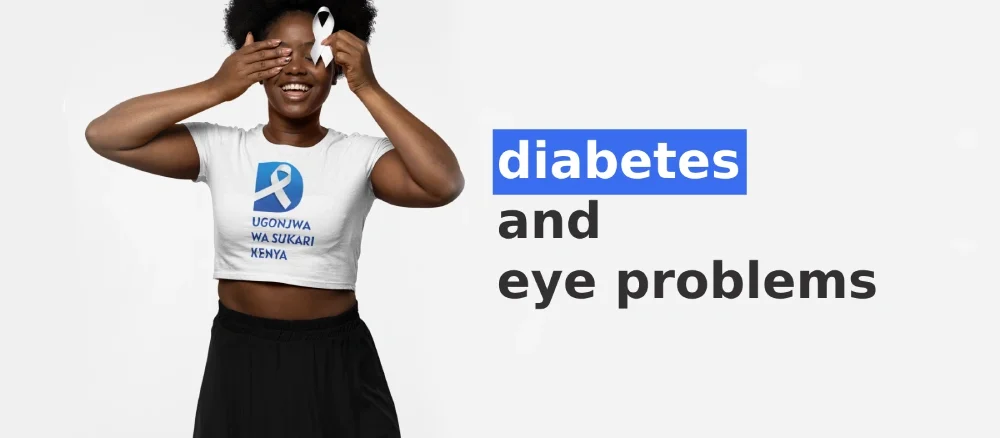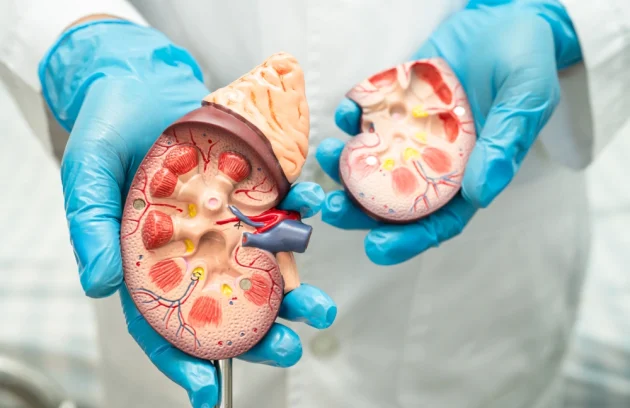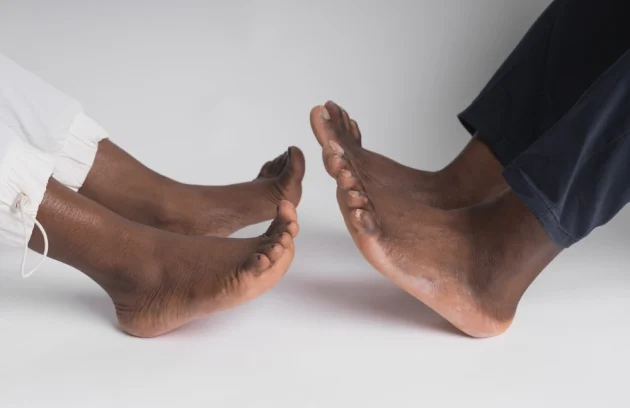- September 27, 2024
- Diabetes Kenya
- Comment: 0
- Chronic Complications
Diabetic Retinopathy — Eye Complications in Diabetes
Diabetes can severely affect your eyes, leading to a condition known as diabetic retinopathy. If untreated, this condition can result in vision loss, affecting your independence, career, and family life. However, regular eye screenings can help detect issues early, preventing serious complications.
What is Diabetic Retinopathy?
Diabetic retinopathy is an eye disease caused by damaged blood vessels in the retina due to high blood sugar and high blood pressure. The retina, the part of the eye that helps you see, relies on these blood vessels for a proper blood supply. When they are damaged, you may experience blurred vision or even blindness if the condition is left untreated.
Types of Diabetic Retinopathy
Diabetic retinopathy progresses through different stages:
Background Retinopathy (R1)
Early damage, but your eyesight isn't affected yet.
Non-Proliferative Retinopathy (R2)
More serious damage, requiring frequent eye screening.
Proliferative Retinopathy (R3)
High risk of sight loss and immediate treatment is necessary.
Diabetic Maculopathy (DMO)
Damage to the central part of the retina, affecting fine details and vision. This can result in difficulty reading or driving.
Preventing Diabetic Retinopathy
You can take steps to prevent or delay diabetic retinopathy:

Regular Eye Screening
Everyone over 12 years old living with diabetes should get regular eye screenings. Early detection can prevent long-term damage.

Blood Sugar Control
Keeping your blood sugar within target levels is crucial to reducing the risk of eye problems.

Blood Pressure and Cholesterol Management
High levels of either can damage blood vessels in the eye, leading to complications.

Healthy Lifestyle Choices
Eating well, staying active, and quitting smoking can help maintain healthy blood pressure and cholesterol levels.
Managing and Treating Diabetic Retinopathy
Early stages of retinopathy can often be managed with lifestyle changes and regular health checks. For more advanced stages like proliferative retinopathy and maculopathy, there are treatments available, and your healthcare team will help you decide the best course of action.
Other Eye Problems in Diabetes
People with diabetes are more likely to develop other eye conditions, such as cataracts and glaucoma, which can also lead to vision loss. Regular checkups and good blood sugar management can help prevent these complications.
If you notice any changes in your vision, like seeing floaters, dimmer vision, or difficulty seeing at night, contact your doctor immediately.

Eye Problems
CHRONIC DIABETES COMPLICATIONS Diabetic Retinopathy — Eye Complications in Diabetes Diabetes can severely affect your eyes, leading to…







